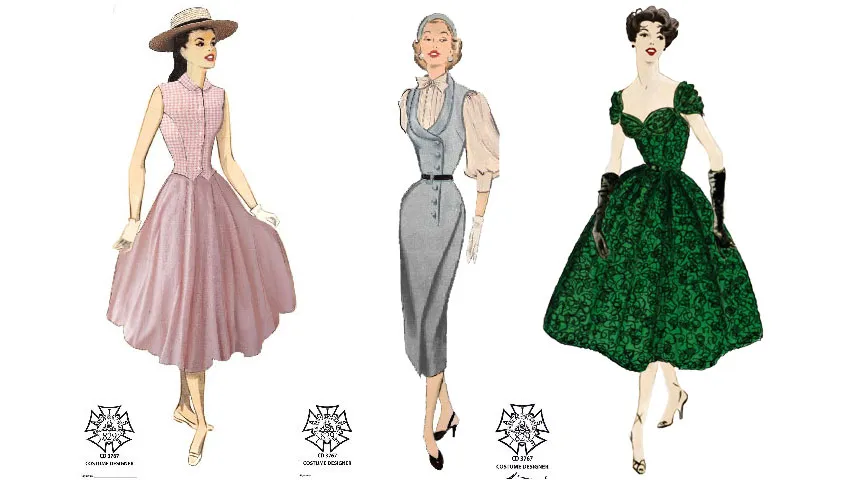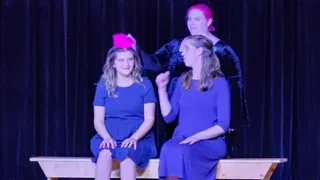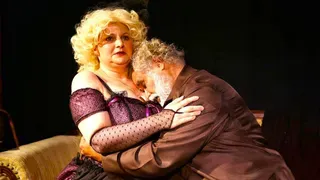January 26, 2012
Yosemite
Winnie McCroy READ TIME: 3 MIN.
Daniel Talbott, the author of "Yosemite" self describes as "Actor, director, playwright, literary manager, and artistic director (of the Rattlestick Theater)" and as such he has won numerous accolades such as Lambda Literary Award, Caffe Cino Fellowship, and participation the Dublin Gay Theatre Festival. All this speaks to oodles of talent, but art is a very personal thing and I was less than thrilled with "Yosemite". In fact I felt lost.
I love the Rattlestick Theater, the small close-up nature of the space where you arrive after mounting steep stairs into a magical world. This time the set, by Raul Abrego really took over the entire stage area.
It is a dark, snow-covered forest. There are big, beautifully-wrought trees, a perspective backdrop that extends the audience and cast deep into the woods, and a giant hole ready to be dug and dug and dug.
For me, the metaphor of the work precedes the play and begins when the stage manager announces that the only bathroom is behind the stage, over the pile of dirt and thus inaccessible until the play is over. I felt the play was as inaccessible as the WC. It was not for lack of talent; on the contrary the cast was excellent, but I felt they were dealt a blow of slowness, and lackluster dialogue all in the quest for unearthing their secrets.
The play opens in these woods with three siblings. The excellent older brother Seth Numrich recently seen in "Warhorse" is digging while his sister, the middle child, played with complaining gusto by Libby Woodbridge, waits on a fallen log clutching and occasionally rocking what appears to be a baby in a black trash bag.
We later learn it is her brother Nathan, who died in his crib and their mother, the scary and bipolar seeming Kathryn Erbe, sent the surviving sibs to bury him. The younger bother, Jer, in his pom-pom hat and over-sized woolen coat huddles and finally gives forth with his fantasy of a visit to Disneyland. Noah Galvin plays him to perfection.
I believed these kids were cold. I believed the forest was frightening, but I didn't care enough. They tell tales about what their life was like before their father died. They spout what they recall of their life before moving into the woods to live in a trailer with their mom, her boyfriend, and a series of spiraling life changes.
The stories they tell are not riveting enough to sustain the time spent sitting watching and listening to their angst and wanting for life to change. I am sorry for them, but I either require amazing backstory full of epiphany or language so extraordinary that going to the supermarket is a revelatory experience. I found neither.
The mother arrives carrying a gun. She finds the children in the woods and alternatively lavishes love upon them and abuses and upbraids them for what scum they are. The mother and oldest son, Jake, have a screaming match so over the top that I had to literally hold my ears to demount the sound to an acceptable level. I am not a fan of volume as a great acting technique.
Each child is spoken to, each shares dreams of escape, desires to move on and live a happy life. As they extol their final wishes we hear a loud BANG. As Chekov said, if you bring a gun onto a stage, it must be fired. It was, and it concluded the play.
I am drawn to well-made family dramas where we see ourselves, as in the specific becomes the universal. I am drawn to strong acting and ownership of characters, but in this case, the play and the pacing fell short on all accounts. The director Pedro Pascal talks about the importance of "Finding action in language. Through language these characters are trying to escape the situation they're in." But I did not find this came through; rather I felt a desire to escape as well, but alas, we were all stuck.







